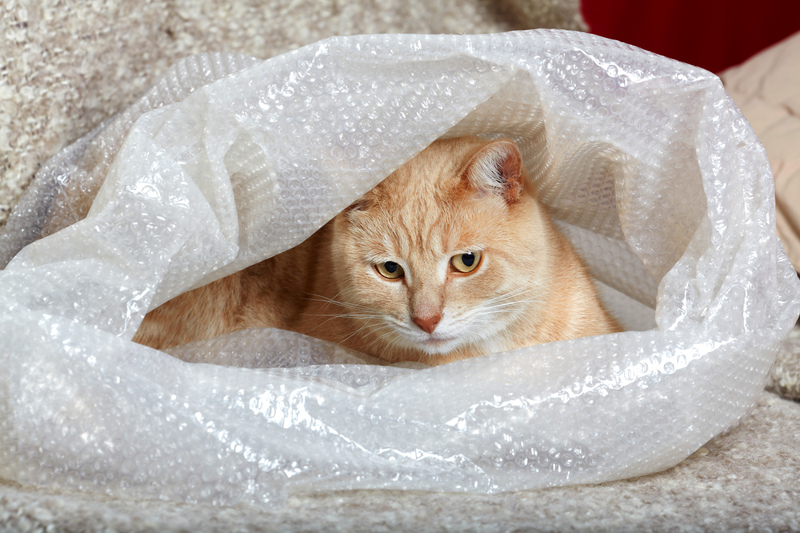How to Prevent Odors and Damage When Your Freezer Is Stored Away
Storing your freezer temporarily or for an extended period? Whether you're moving home, renovating, or simply not needing your appliance for a while, knowing how to prevent odors and damage when your freezer is stored away is essential to preserve its longevity and ensure it's fresh and functional when you need it again. This comprehensive guide covers every step, from preparation to storage techniques, odor prevention, and maintenance tips.
Why Proper Freezer Storage Matters
Appliances like freezers are investments in your home's functionality. Improper storage can lead to foul odors, stubborn stains, unwanted mold, rust, and even irreversible damage to sensitive components. Prevention is not just about keeping your freezer looking good--it also means protecting your health and saving on costly repairs or replacements later.
The Risks of Inadequate Freezer Storage
- Mold and Mildew Growth from residual moisture
- Persistent Odors from trapped food particles or closed circulation
- Rust and Corrosion due to condensation
- Plastic Cracking or Warping from rapid temperature fluctuations
- Pest Infestation if food remnants are left behind

Preparation: Getting Your Freezer Ready for Storage
Before you even unplug your freezer, invest time in proper preparation. This is the most crucial phase to preventing freezer odors and damage while stored.
Step 1: Remove All Contents
- Take inventory and empty the freezer completely. No matter how well-packaged, food always leaves behind traces that promote bacterial and fungal growth.
- Distribute, cook, or dispose responsibly of any perishables.
Step 2: Defrost Safely and Thoroughly
- Unplug the freezer and prop open the door to let warm air enter. Place towels around the base to absorb any melting ice.
- Never use sharp objects to chip away ice--it could damage internal walls. Patient defrosting is best.
- Tip: Place a shallow tray or pan inside to catch melting water and speed the process by placing bowls of hot (not boiling) water inside.
Step 3: Clean All Surfaces Meticulously
Cleaning is the secret to eliminating odor sources and preventing bacterial growth. Here's how to do it right:
- Mix a gentle, food-safe solution (like a tablespoon of baking soda in a quart of warm water). Avoid harsh chemicals such as bleach or ammonia, which can damage plastics.
- Wipe every surface: shelves, gaskets, compartments, and doors. Use a soft sponge or microfiber cloth.
- Clean removable parts in a soapy sink, rinse, and dry thoroughly.
- Don't forget the drainage hole, which can harbor hidden residues.
Dry everything completely! Any remaining moisture is an invitation for mildew and rust.
Step 4: Odor Neutralization Techniques
- Baking Soda: Leave an open box of baking soda inside for several hours or overnight to absorb residual odors.
- Activated Charcoal: Works even better than baking soda for deeper odor removal. Just a handful in a shallow dish is enough.
- White Vinegar Solution: Use a half-and-half mixture of white vinegar and water to wipe surfaces and neutralize lingering smells.
- Lemon Juice: For stubborn smells, wipe down interior surfaces with a cloth soaked in lemon juice. Leave peels inside for several hours.
How to Store Your Freezer: Strategies for Odor and Damage Prevention
With your freezer clean, dry, and odorless, you're ready for safe storage. These best-practice strategies will help you avoid odors and damage while your freezer is stored away.
Keep the Door Propped Open
- Never store a freezer with the door fully closed.
- Trapped air and residual moisture quickly lead to stale, musty odors and internal mildew.
- Insert a rolled-up towel, a piece of foam, or a manufactured door prop to keep the door ajar by at least an inch.
- This simple step ensures air can circulate and the cavity stays bone dry.
Choose the Right Storage Environment
- Dry, Covered Space: Store your freezer in a covered area away from rain or high humidity.
- Stable, Moderate Temperatures: Extreme heat or frost can crack plastic liners and stress sensitive components.
- Ventilated Area: Avoid damp basements or garages prone to condensation.
- Avoid direct sunlight to prevent plastic discoloration.
Protect Exterior Surfaces
- Wipe down the outside with a mild soap solution and dry thoroughly.
- Wax or polish the exterior (optional but useful for older appliances) to offer extra protection against oxidation and rust.
- Cover the freezer loosely with a breathable cloth cover (never plastic sheeting, which traps moisture).
Special Tips for Long-Term Storage: Freezer Damage and Odor Prevention
Check and Care for the Gasket
- The door gasket (seal) is vulnerable to drying, cracking, and harboring mold. Wipe it with a vinegar solution, ensure it's completely dry, and apply a thin coat of petroleum jelly to retain flexibility and prevent cracking.
Secure Power Cord and Components
- Wrap the cord loosely (never tightly coiled, as it may degrade insulation).
- Place any removable hardware back in the main cavity to avoid losing parts.
- Secure any small trays or shelves with masking tape so they don't shift and break.
Preventing Rust and Corrosion
- Elevate the freezer slightly off concrete floors using wooden slats or bricks--bare concrete can transfer moisture and cause rust.
- Place a small container of desiccant (like silica gel packs) or baking soda in the interior to absorb humidity.
Natural Odor Absorbers to Leave in Your Unplugged Freezer
- Baking Soda: Inexpensive and highly effective for absorbing residual smells.
- Charcoal Briquettes: Place a few in a shallow tray (unlit and natural, no lighter fluid) to bind odors.
- Coffee Grounds: Fresh or dried coffee grounds in an open container can help neutralize stubborn freezer odors.
- Lemon Peels: Not only freshen up the cavity but may also repel some pests.
Routine Checks During Storage
If your freezer is stored long-term, it's wise to periodically check for signs of moisture, pests, or damage. Here's how:
- Every 1 to 2 months, open the freezer:
- Ensure the door is still propped open.
- Swap out baking soda, charcoal, or other absorbents if they've been in place for more than two months.
- Inspect the gasket and interior for any new moisture or odor development.
What To Avoid: Common Mistakes That Cause Odors and Damage
- Never seal the freezer airtight--it traps residual moisture and turns your appliance into a mold incubator.
- Don't leave any food or packaging materials inside, no matter how tightly wrapped.
- Never store in direct sunlight or outdoors, which invites pests, temperature extremes, and UV damage.
- Don't wrap the freezer in plastic or tarps--use breathable materials only.
- Don't skip the drying step, or risk extensive mold and musty smells.
Restoring Your Freezer After Storage: Bringing It Back to Service
Once you're ready to bring your freezer back into use, follow these steps to ensure there are no lingering odors or hidden damage:
- Uncover and inspect the appliance fully. Look for rust, warped plastic, or pests.
- Remove all odor absorbers and discard them--don't use the same baking soda for food storage!
- Wipe down the interior and gasket with a fresh baking soda solution.
- Plug in and let cool to operating temperature before adding any food.
- If any odor persists, repeat the vinegar or lemon wipe and air out with the door open for several hours.

FAQs: More Tips to Prevent Freezer Odor and Damage in Storage
Can I store a freezer outside?
No. Outdoor humidity, rain, pests, and temperature swings are likely to cause rust, electrical problems, and permanent odors. Always choose an indoor, covered, ventilated space for storage.
How long can a cleaned freezer stay unplugged?
Indefinitely, provided it's dried, propped open, and checked periodically. Monthly inspections are still recommended.
Do I need commercial odor removers?
Usually not. Baking soda, activated charcoal, or coffee grounds work very well for most situations. Only consider commercial odor absorbers if odors are extremely stubborn after deep cleaning.
Is plastic wrap or plastic sheeting safe for covering the freezer?
No! Plastic does not breathe and will trap condensation, which leads to rust and mold. Always opt for breathable cloth or appliance covers.
Summary: Key Takeaways for Odor-Free and Damage-Free Freezer Storage
- Clean, dry, and neutralize odors before storage.
- Prop the door open to maintain air flow and keep interior dry.
- Store in a dry, sheltered, indoor location--never outdoors.
- Check periodically if stored for more than a few weeks.
- Avoid the temptation to seal your freezer tightly or use plastic sheeting.
Following these comprehensive steps on how to prevent odors and damage when your freezer is stored away ensures that your appliance remains in excellent condition, odor-free, and ready to serve you for years to come. Remember, a little effort now saves hassle, expense, and frustration later. Your freezer--and whatever you store inside it--will thank you!



